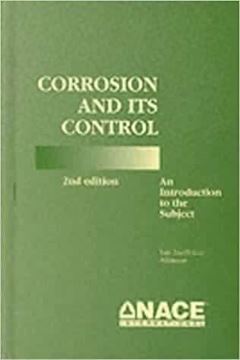
Practical hands-on lessons using instruments of the trade.

Thorough overview of equipment and field problems, as well as common mistakes made when taking cathodic protection (potential) measurements. INTRODUCTION TO PIPE-TO-SOIL POTENTIAL MEASUREMENTS DOT requirements regarding rectifier inspections are also introduced. General overview of the basic components of rectifiers and how they work. Introduction to pipeline coatings and proper application methods used in pipeline corrosion control. FUNDAMENTAL INTRODUCTION TO PIPELINE COATINGS PIPELINE ELECTRICAL ISOLATION METHODSįundamental introduction to the theory and practice of electrical isolation methods. INTRODUCTION TO CATHODIC PROTECTIONįundamental introduction to the theory of cathodic protection as it relates to underground pipeline corrosion control. Basic corrosion processes and practical applications of corrosion control methods are discussed. FUNDAMENTALS OF CORROSIONįundamental introduction to the theory behind the corrosion process. PIPELINE LOCATINGįundamental introduction to the workings of a pipeline locator and correct pipeline location methods. Topics covered include: common factors, Ohm's Law, electrical circuits, rectifier efficiency, and conversions of temperature and length. CLASS DESCRIPTIONS FUNDAMENTALS OF CORROSION MATHEMATICS AND ELECTRICITYįundamental approach to mathematic equations and formulas widely used in the corrosion industry. Students should bring a calculator to class. Students are encouraged to take the complete Fundamentals Course and return the following year for the Basic Course. Topics include basic corrosion, coatings, cathodic protection and potential measurements. Students have access to the course and any corresponding materials for one year and must complete all course work within that one-year time frame before the subscription expires.An introductory course in the fundamentals of corrosion and pipeline corrosion control, to help persons with little or no experience in the field understand why underground pipeline corrosion control is so important.

#Nace basic corrosion course book registration
Online subscriptionĪll online courses are subscription-based for a period of one year from the date of registration and are non-refundable. Once you set up your profile in the online portal, you can then schedule the exam at your convenience. Exam authorization takes 5-7 business days and when complete, you will receive an email from with login and scheduling instructions for the online portal. The exam is administered through Examity, a remote online proctoring service. The initial exam fee for the Corrosion Foundations Exam is included with the course registration fee. All certification and renewal applicants will be required to complete the NACE International ethics training program OR an equivalent training and provide proof of completion as part of the certification application or renewal process.

Requirements are specific to each course and may include a combination of attendance, daily assessments, activities, quizzes, or knowledge checks. Successful completion of the course is required to earn a certificate of course completion.
#Nace basic corrosion course book how to
Discuss the various forms of corrosion, how to recognize each form, materials subject to each form, environments that promote each form and how to control each form.Distinguish between engineering materials such as metals, non-metals, composites, concrete and ceramics and their relationship to corrosion control.Identify the characteristics of commonly-encountered corrosive environments such as atmospheric, water and other electrolytes, soil and high temperature environments.Recognize terms and definitions of basic electrochemistry, as well as define the processes and concepts of electrochemistry, oxidation and reduction reactions, thermodynamics, kinetics, and passivity.Define corrosion and recognize the economic, environmental and safety impact of corrosion.Technical Communities of Interest (TCI).


 0 kommentar(er)
0 kommentar(er)
